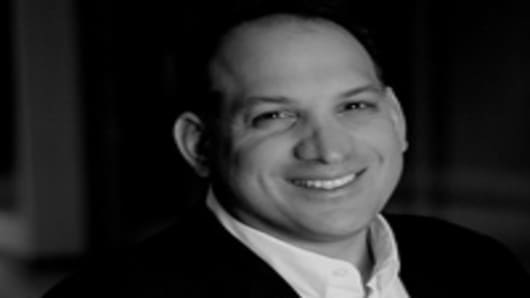A lot of advice is being offered up to the graduating class of 2009 - especially since the job market seems so bleak.
And nearly everyone who has some words of wisdom for the grads suggests they "follow their dreams." Sounds good, sounds hopeful, sounds ideal - but, you gotta wonder, do dreams really pay the bills?
Well, yes in fact they do - if you believe what the authors of "What Makes You Tick? How Successful People Do It - And What You Can Learn from Them".
The authors - two pollsters - interviewed some of the world's most successful people and found a constant theme. Those who have found success found early on in life what they were good at - and learned how to leverage their strength.
Good advice for graduates looking to show the world (and their parents) they're more than ready for the challenge.
Below is a guest blog written by one of the authors, Michael Berland:
Dear Recent Graduates and the People Who Love Them,
This commencement season, anxious graduates have gotten advice urging you to hang tough or “buck up” until things recover and you can begin climbing the career ladder of your choice.
What many commencement speakers miss is that no matter what the economic climate, your waiting for your career path to reveal itself is as misguided as your waiting for the Titanic to pop back up to the surface.
Forget false optimism. My business partner in the polling and research firm we run and I did a recent analysis of how extremely successful people found success in their chosen field.
We interviewed and tried to find commonalties and distinctions among 45 of the most successful people in business, sports, fashion and entertainment.
Here are the take-aways:
Your first job will not be your last job. And it shouldn’t be; the people who are at the top of their game in their chosen fields now are living proof.
NBC anchor Brian Williamstold us he started out as a firefighter. Chef and restaurateur Bobby Flay described how very early on he was a clerk on the floor of the American Stock Exchange. Barry Sternlicht, founder of the W Hotels and Starwood Resorts, sold knives door to door and cut onions in a restaurant.
Be ready to take a chance on the unlikely or unfamiliar. Experiment. Be fearless.
It’s been said many times in other ways before, but Ambassador Richard Holbrookeput it to us like this “Failure is a great teacher. People who are trying to learn how to succeed should try failure more often.”
Be inventive. As tempting as it is in tough economic times, don't automatically take the first “safe” or “stable” thing that comes your way. Go for something that fits with who you are or the kind of person you want to become.
Today, the opportunities are there for people who are smart, have learned lots of different kinds of things, and are still flexible and curious. Even in a seemingly dead-end job or a corporate job, be entrepreneurial – it helps you grow.
Other examples? Jake Burton of Burton Snowboardswas a landscaper in Vermont. Jeff Zucker of NBC Universalwas a journalist; he’s now a businessman running a major multimedia empire. Mark Burnettserved in the British army before he went on to create TV shows like “Eco-Challenge” and “Survivor” in America. Craig Newmark, who founded Craigslist, thought about going into paleontology.
The starting point may just not look like what you expect. Heidi Klum(the super-model who broke the model by becoming a mega-successful TV host and producer, and leader of a best-selling European fashion and beauty line) told us that having diverse pursuits is what has worked for her: “I love that I have so many different things going on in my life, and that’s what I thrive on.”
The most important common factor in our study of successful people was that they were all, often at about your age, very introspective about what they were good at, what they were passionate about and what they thought they would find fulfilling.
Still there are many differences among the success stories we analyzed.
- Some of the successful people are natural born leaders – they are all about inspiring others and navigating complex hierarchies on their rise to the top.
- Some are visionaries, who build their careers on making their big idea happen.
- Some are do-gooders, who build their lives around helping others.
Others, like me, are independence seekers, who like to cherry-pick projects that they find challenging and like to walk away and start over whenever they want.
For all the individuals within each different success archetype, the key was leveraging their own personality skills and motivational factors.
So once you’ve taken off that cap and gown, it’s time to sit down and make some lists. What have you found motivates you in school and outside of it? What doesn’t? Ask around - what do teachers, peers and parents say or admire about you? And most importantly, what are your passions, where time simply flies when you are pursuing them?
Then as you seek opportunities - even if they feel few-and-far-between while the economy rights itself - evaluate them against your list.
Who will the most successful and fulfilled people be? They will be those who are smart and relentless and ready to look at everything with fresh eyes. They will be constantly asking the most fundamental questions no matter what field they choose: What’s important to hold on to? What’s missing, and how do we get to it? What’s broken and how do we fix it? What haven’t we even imagined yet?




